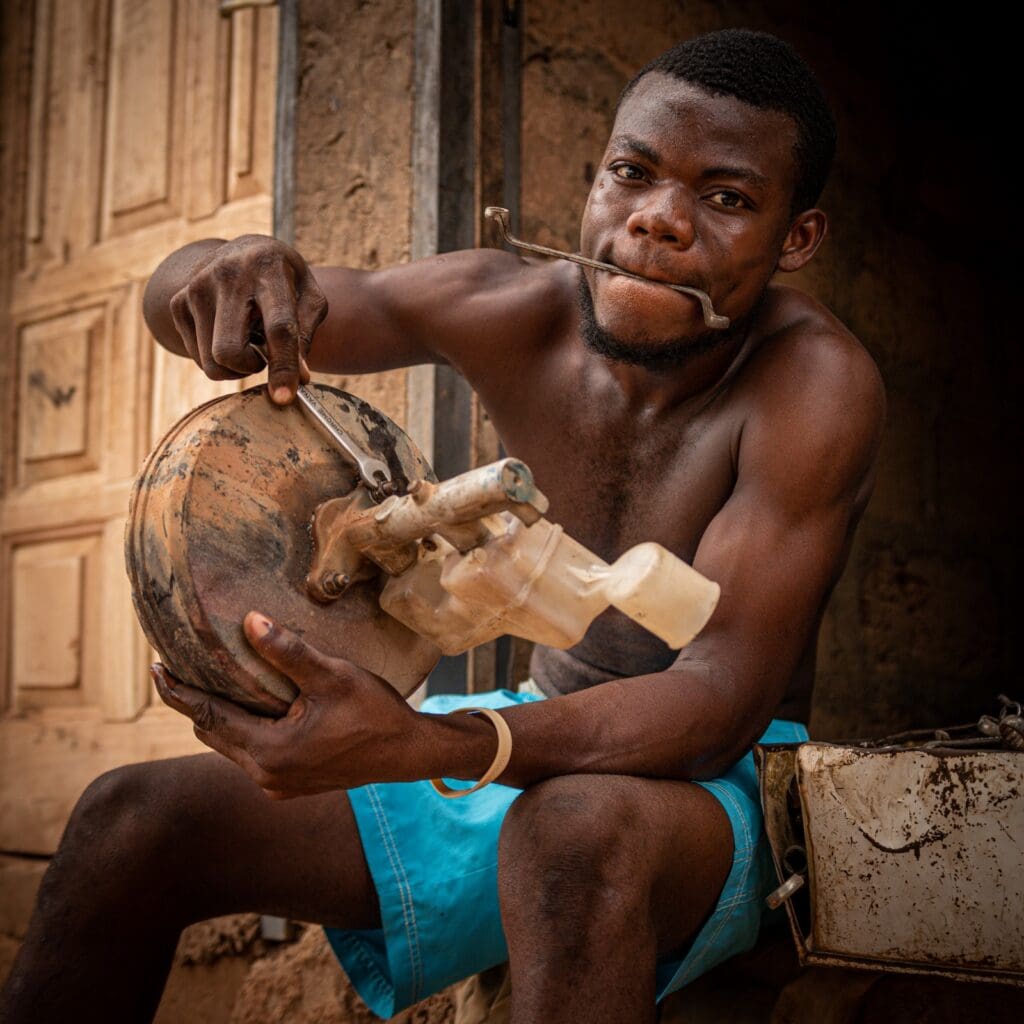
The sun scorches the orange ground of this open car office in Ablekuma, a western district of the Ghanaian capital. On a plastic bench near the parking slots, the radio of Mr. Quaye, the chief mechanic, blends Twi and English in the homilies of a pastor. It’s Sunday, but broken cars know no rest days.
Seated on a pneumatic wheel, a twenty-year-old boy drenches in sweat, but his young smile is brighter than the rusty white car he’s fixing. His name is Jonathan, but he tells me the friends he plays football with call him Balo. He’s the youngest among the crew of mechanics—Mr. Quaye’s newest apprentice.
Despite his age, something different lurks in the eyes of this man. Where Balo’s shirtless colleagues swear over soulless packets of tin and rubber, he sees a playground nurturing a dream, but I soon discover it’s not about football.
A glimpse of scorn crosses Mr. Quaye’s face when I steal his apprentice for a talk.
Protecting his country and the people he grew up with has been on Jonathan’s mind since his childhood—a time when, after watching a movie with his classmates and teacher, he saw in a military uniform what inspired his vision.
Jonathan doesn’t make me wait too long before spilling the beans. The “toys” he juggles—these wrenches, screwdrivers, holed wheels, and hot car hoods—will make him what education could not: a soldier.
The question is legitimate, how does a mechanic who hasn’t completed secondary school become a national soldier?
A project for the future
For Jonathan, working for Mr. Quaye isn’t just a job; it’s a plan. A journey he expects to last three years. A period meant to teach him the art of craftsmanship and repair.
Once his training is complete, Jonathan will obtain a certificate from Mr. Quaye—a document he will present to the army, testifying his ability in dealing with vehicle maintenance. With that, he hopes to be accepted as a technician soldier, crawling the ranks to fulfill his dream.
Jonathan’s eyes grow misty, and a few forced smiles attempt to hide his sorrow when asked about his father, who passed away when he was younger. Knowing that his father would have not liked seeing him giving up on his dreams motivates Jonathan to keep on working through hardships.
Now, it all starts to make sense. This is when these screws, hammers, drills and allen keys lying on the burned ground of a car office in Accra stop being just toys, but they become tools for a man to craft the life he dreams.

